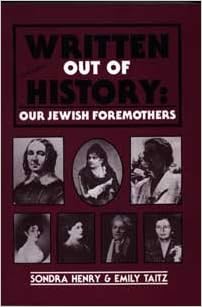In 1999 I daringly went to a conference (GrailQuest ‘99) and my two worlds collided as they never had before. I went for the Medieval Arthurian stuff (of which I’ve long had a strongly academic interest and about which I’ve written my fair share), but I wasn’t confident enough after all those years outside academic research and didn’t offer a paper. I was more active in the fiction side, and met many people who became long-term friends. I asked a question from the floor of an academic panel and everyone looked across and asked me a question back. They listened, and one of my favourite Aussie writers of the matters of Arthur took me aside and we talked about the subject for a fair while. The write-up of the conference published my answer. I was also asked for a non-academic version of my answer. This is the one I’m giving you this week.
A Jewish King Arthur?
OK, let me admit it up front. As far as I know King Arthur was not Jewish, not in any piece of medieval literature. I have seen him written up as a fairy, as a warlord, as the leader of a very fancy court, but never Jewish. But while he was definitely not Jewish, Jews wrote about him. How do I know the authors were are Jewish? Well, one work is in Hebrew and another in Yiddish. This is a fairly strong indication.
It is hard to say if any other Medieval Arthurian works are Jewish. Most are blatantly Christian. There is, for example, a wonderful prose romance (just amazingly long) where the Grail becomes a very religious object (which it may not have been originally, but that is another story): this is a decidedly Christian affair. And there are some named authors who belong to one court or another and are more likely to be not Jewish. Most Medieval literature is, naturally, by that prolific author anonymous.
One author is borderline. I have seen it argued that Chretien de Troyes (who first introduced the grail into Arthurian romance) was Jewish. He was one of France’s great poets, so I have always wanted it to be proven that he was, indeed Jewish, but the likelihood is that he was not. He may well have Jewish relatives though, or at least Jewish friends – his place of birth was an important Jewish centre, after all -so there is some consolation. Since Chretien as good as invented the verse novel known as the Medieval romance, even a vaguely possible Jewish link is a nice thing.
Most literature written in most medieval languages, sadly, has to be assumed to be Christian unless there is positive proof to the contrary. We are talking, you see, about a Christian society.
But because we are talking about Christian countries in the Christian corner of the world, we can be 100% certain that anything written in Hebrew or Yiddish is very, very unlikely to be written by a Christian. Hebrew was known by scholars of all sorts, but the one Hebrew Arthurian manuscript we have is purely and wholly and gloriously Jewish. There was no reason for clerics to write German texts down in Hebrew characters unless it was for a Jewish audience, so any Christian reader of a Yiddish Arthurian manuscript would have to be the rather bizarre combination of a scholar whose native tongue was German and who preferred to read a translation into a dialect of their vernacular language written in an odd script. Unlikely, I suspect, especially when there is a lovely German version of the same story (Wigalois). So the likelihood is nicely strong for the writer of Widuwilt (the Yiddish tale) to have been Jewish, and probably the copyists and, almost definitely most of the listeners. It was written originally to be declaimed or sung, so most of the audience were listeners rather than readers.
So we are back to the works themselves. What are they? Do we have any idea why they were written? What is their history?
The Hebrew tale is popularly known as the Melekh Artus, and was written in 1279 by a poor soul in the midst of a very trying time. We know this because he wrote it in his introduction: he was translating the Arthurian tales to cheer himself up, and justified it at great length, citing Rabbinic authority. The author/translator was from northern Italy and bits of Italian have crept in. As he was Jewish, bits of Christianity have crept out. Wherever his source has a mass, he omits it, and he translates concepts into Jewish equivalents. I am not sure that Saints and Tsaddikim are analogous, and I really like the thought of the Holy Grail becoming a dish used to give food to the poor.
Either the text is unfinished or the copyist ran our of steam, because the one manuscript of this amazing text is, alas, incomplete. Very incomplete. It is held in the Vatican, and has been edited and translated and yes, Canberra has a copy (at the National Library). Its literary value is very low, I must admit, and the French sources that were used are much more entertaining (except for the brilliant apologia at the beginning, which is well worth reading) but it is most definitely a Jewish (Italian) version of the Arthurian tales.
The other work is later and exists in several versions in several manuscripts and editions. It was not written down until the very close of the Middle Ages, but made up for this shocking lapse by being popular for centuries. Widuwilt only features Arthur as an aside. It is actually about Gawain and his son. It is from the German that the tale reached Yiddish, hardly surprisingly, from an Old French original. The hero has a different name I the German, though. Unfortunately, we have an early example of Jewish humour (maybe written by an ancestor of Sylvia Deutsch?). Apparently Gawain was not really paying attention when his wife bore him a son (he was just about to desert the poor lady, in point of fact) and so, when she asked him what Gawain wanted to call the baby, Gawain answered “Whatever you want”, so he was called “Whatever you want” or “Widuwilt”. Apart from this, most of the tale follows the German original according to my sources (which is just as well, because the French and the German are relatively available, but the Yiddish is not so none of these comments imply a sighting of the original!) except for some adventures added at the end.
It seems to be a lovely adventure romance, with all the Christian bits left intact (yes, Arthur holds court at Easter, rather than at Pesach!) and lots of good fighting. While the Hebrew tale was a bit more serious (as befitting a scholar suffering form melancholy) Widuwilt is simple entertainment, and very suited to a Spielmann and his audience.
Now for the $64,000 question: why am I interested in these works? Like the writer of the Melekh Artus, it is for sound and moral reasons, although I won’t go so far as to cite Rabbinic authority..
One thing that these Medieval Jews had in common with us was the fact that they were a minority group in a society so very Christian that it took that Christianity for granted. You ask most Australians and they will say that Australia is not a Christian society, that it is secular. Yet Christian holidays, Christian imagery and Christian concepts weigh down the very air we breathe. The relationship between Christianity and society was different in Italy in 1279 to Australia seven hundred years later, and Jews definitely have different status, different acceptance, different problems. But we are still not quite mainstream. We are still outside the norm.
Even in the more restrictive atmosphere of Medieval Europe, Jews could reach out and make sense of the fullness of the outside culture. Unless you translate a romance or read it in its original language, you cannot make any sense of the people who write and read in that style. Widuwilt is evidence that some Jews were enjoying Arthurian romances, and actively coming to terms with all those elements of Western European vernacular culture.
The fact that only two works have been translated or interpreted into Jewish languages, one unfinished and apparently for private use, shows that Jews had very different concerns to Christians. But it also show that there was overlap and a meeting of interests. Not only is this interesting in its own right, but it gives us a neat tool for use in understanding our own society, for understanding the culture we share with others, and those elements that are specifically Jewish.
As Australians we often use the dread phrase “cultural cringe”. It can apply just as much to being Jewish Australians as to being Australians in general. We are neither solely religious nor simple recipients of wider Australian culture. We don’t take the whole of our identity from Chaim Potok, nor from Mary Grant Bruce. King Arthur teaches us that. If there is a Jewish view of King Arthur and even a Jewish grail, then there is a Jewish view of everything.



 Biblio Press, 1988). Posthaste, I ordered a copy of the book and then pored through it. The chapters were short, more summations than in-depth histories. Although quite a few of them piqued my interest, only one suggested a story, that of Dona Gracia Nasi. The section began:
Biblio Press, 1988). Posthaste, I ordered a copy of the book and then pored through it. The chapters were short, more summations than in-depth histories. Although quite a few of them piqued my interest, only one suggested a story, that of Dona Gracia Nasi. The section began: